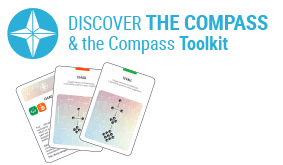Visualization techniques for facilitating learning
/After a guest contribution of Nancy White on graphic facilitation we have a new guest post on the same topic from Leen De Kort:
People learn in different ways. Some of us like reading or feel the urge to rewrite important information; others seem to retain a lot of visual information. But whilst reading and writing are always present in learning and training, visual information generally isn’t. Yet there are reasons enough to start integrating visual aids more consistently.
Not only would we help ‘visual learners’ by doing so. We could all benefit from combining different senses to retain information. Not to forget that using visuals simply makes things less boring, and thereby motivates people to pay closer attention. Fortunately, due to the rise of technology, integrating visuals becomes easier than ever.
This year’s International Training of Trainers Forum focused on visualisation. Next to including sessions about visualisation techniques (graphic recording, digital storytelling and the use of apps), we also tried to be as visuals as possible in our own preparation and communication. Therefore different tools were used.
When preparing for the different sessions, we used visual templates to structure our session plans. Upon request, we shared the templates in an online community on Facebook (RosViz10)

















